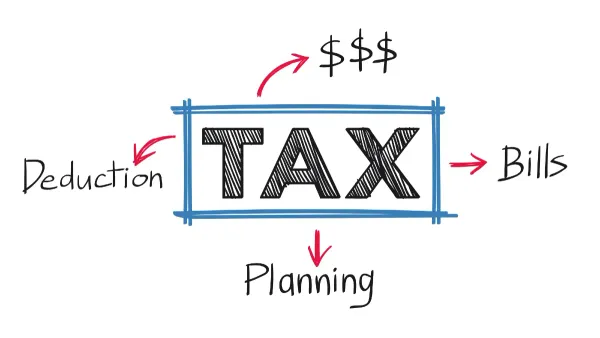Deciding whether to do your own taxes with software or hire a professional like a Certified Public Accountant (CPA) is a classic choice: cost and speed versus deep knowledge and protection.
For individuals whose finances are simple, software is an obvious choice. When your money picture gets complicated—meaning you have business income, investments, or big life changes—the value a CPA brings usually costs less than the headaches and missed savings they prevent.
The Advantages of Tax Software
Tax preparation software (like TurboTax or H&R Block) is built for speed and low cost.
- Low Cost: For simple W-2 returns, software costs far less than paying a human professional. Basic filing often runs under $100.
- Speed and Convenience: You can file when you want, day or night. The whole process often takes less than an hour, and data moves easily from your banks and investment platforms.
- Accuracy Guarantee (Math Only): Software promises the mathematical accuracy of the forms. If the IRS penalizes you because the software made a math error, the company usually pays the fine.
When You Need to Hire a CPA
Tax software is only a reporter—it files the numbers you give it. A CPA provides strategic advice and legal knowledge that a program cannot.
You should switch from software to a CPA when your situation involves any of these complex factors:
1. Business Ownership & Advanced Deductions
- Self-Employment/Freelance: If you run a sole proprietorship or single-member LLC and file Schedule C. A CPA ensures you correctly label expenses, find all deductions (like the Home Office Deduction), and calculate self-employment tax. They know exactly how to structure your business expenses to stand up to IRS scrutiny.
- Advanced Entity Types: If you own a multi-member LLC, S-Corp, or C-Corp, professional expertise is necessary for compliance, payroll, and finding the best way to pay owners while minimizing tax burden.
2. Complex Investments & Retirement
- Real Estate: Owning rental property means dealing with depreciation, tracking passive income rules, and managing property costs—areas where a CPA easily finds deductions you missed.
- Advanced Trading: Dealing with complicated capital gains, wash sales across several brokerages, or reporting cryptocurrency trades from many exchanges gets better with professional review.
- Incentive Stock Options (ISOs): ISOs can unexpectedly trigger the Alternative Minimum Tax (AMT). A CPA can run scenarios and offer planning advice to limit the AMT's effect years before the tax is due.
- Retirement Optimization: A CPA can analyze your retirement savings structure (e.g., maximizing contribution between a Solo 401k, SEP IRA, and Roth IRA) to maximize tax benefits, a strategic planning task software ignores.
3. Major Life Changes and Planning
- Multi-State Filing: If you live in one state but work remotely for a company in another, or if you moved mid-year, a CPA handles the difficulty of filing in two or more places correctly.
- Estate Planning: A CPA helps you set up trusts, gifts, and estate plans to reduce future taxes—a task far beyond the program’s scope.
The True Value: Audit Defense and ROI
The greatest non-monetary benefit of hiring a CPA is the immediate credibility and defense they provide if you receive a notice from the IRS.
Audit Defense and Representation
- Software's Limit: If the IRS sends an audit notice, the software company’s guarantee covers only calculation errors. It does not cover the consequences of inputting wrong data or mistakenly taking an ineligible deduction. You are on your own.
- CPA's Shield: A CPA is legally licensed to speak directly to the IRS on your behalf. They manage all correspondence, prepare documentation, and defend the financial positions taken on your return. This defense provides invaluable peace of mind and often results in a better outcome than dealing with the IRS alone.
Calculating the Return on Investment (ROI)
Think of the CPA fee as an investment, not a cost.
- CPA Fee: Say you pay $600 for a CPA to prepare a complex return.
- Missed Savings: If that CPA identifies $4,000 in missed deductions (due to optimized real estate depreciation or correctly classifying business expenses), that $4,000 in savings might translate into a $1,200 refund (assuming a 30% effective tax rate).
- Net Gain: Your net gain is $1,200 - $600 = $600.
If your finances are complex, the CPA's fee is often more than covered by the savings they find.
Weighing Cost Against Value
For the simple W-2 employee who uses the standard deduction, tax software works fine. For everyone else—the business owner, the active investor, or the homeowner with a rental property—the CPA acts as an insurance policy. The fees you pay often save you money over time by finding missed deductions, preventing costly errors, and giving you peace of mind.


